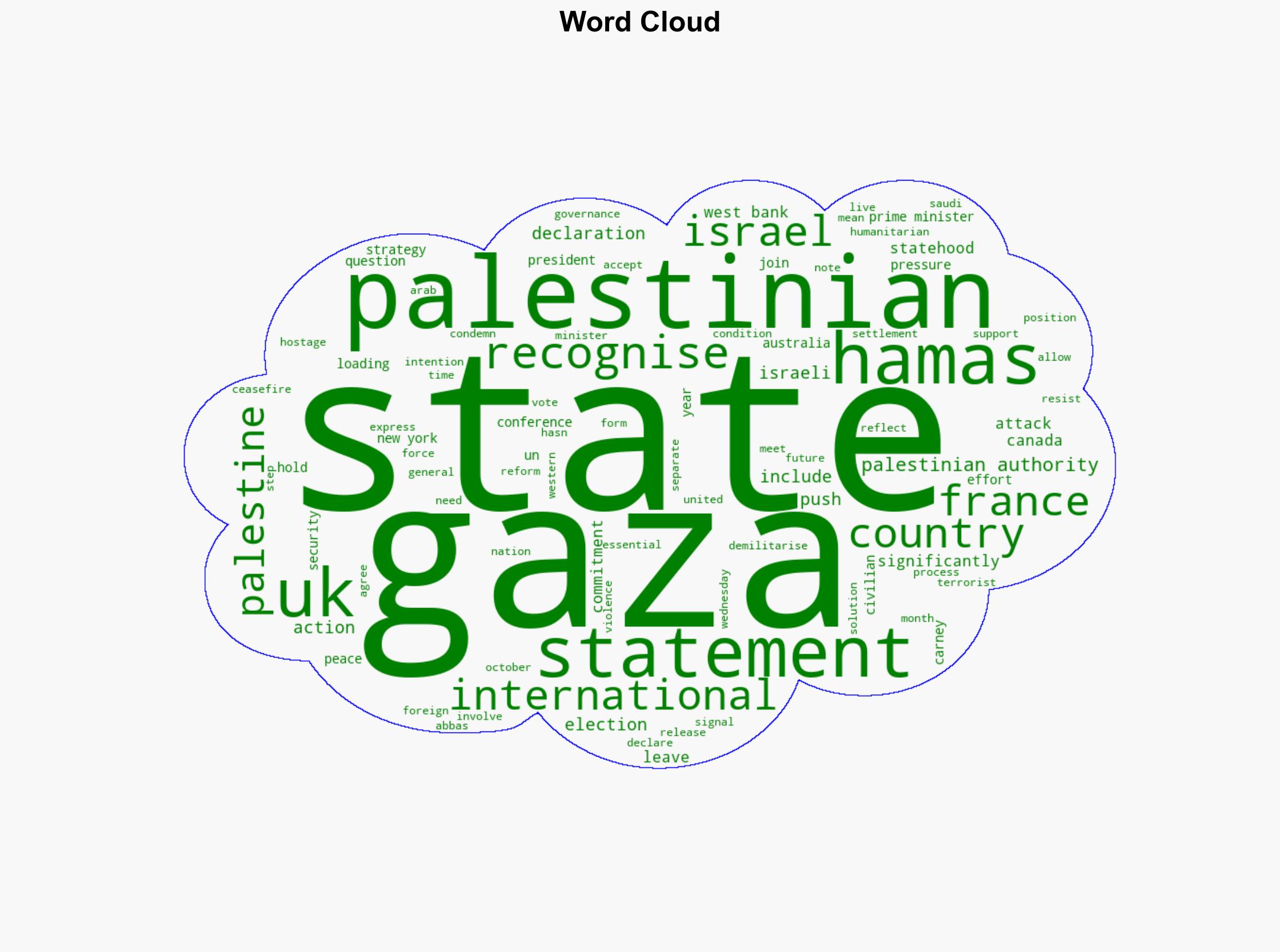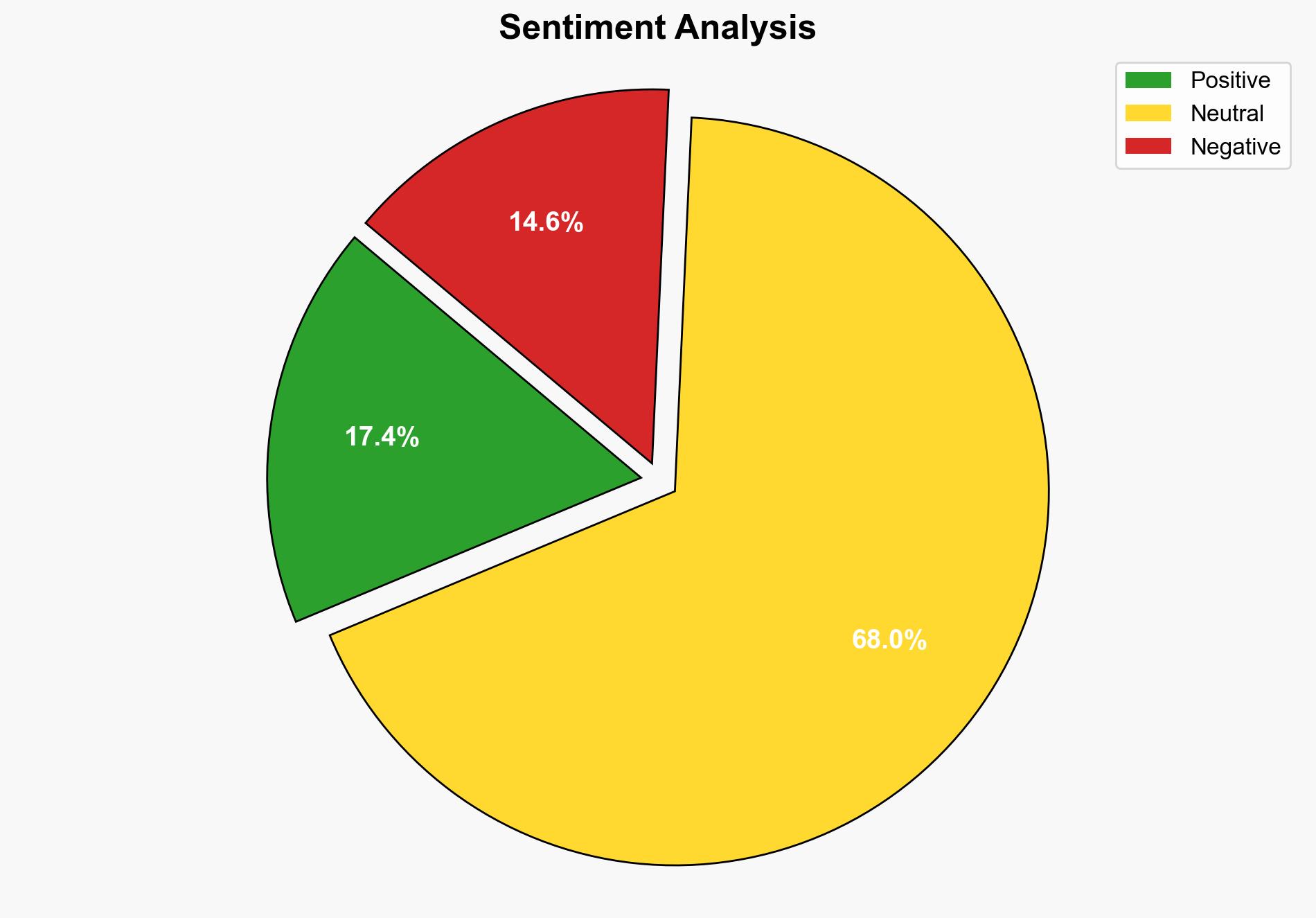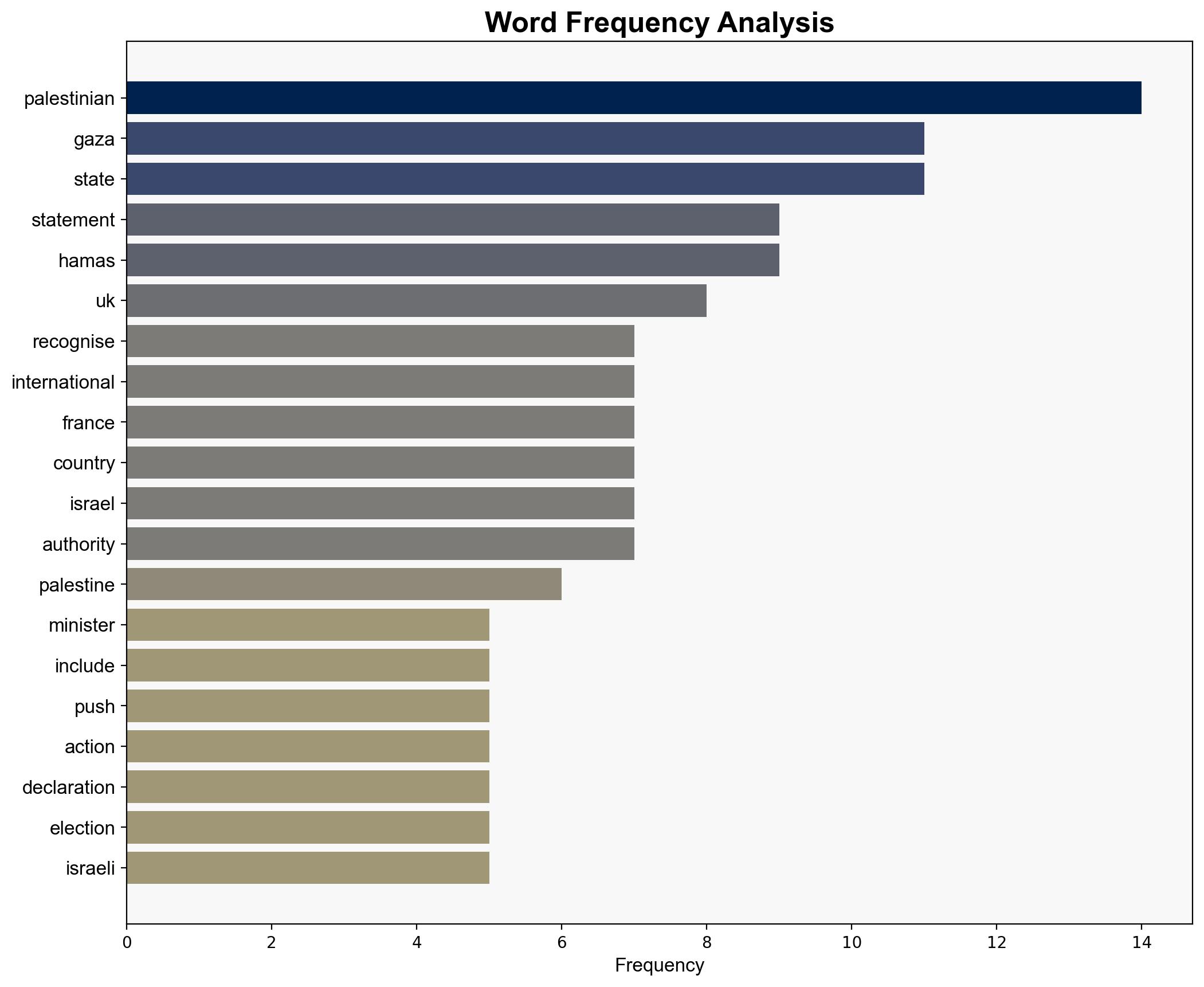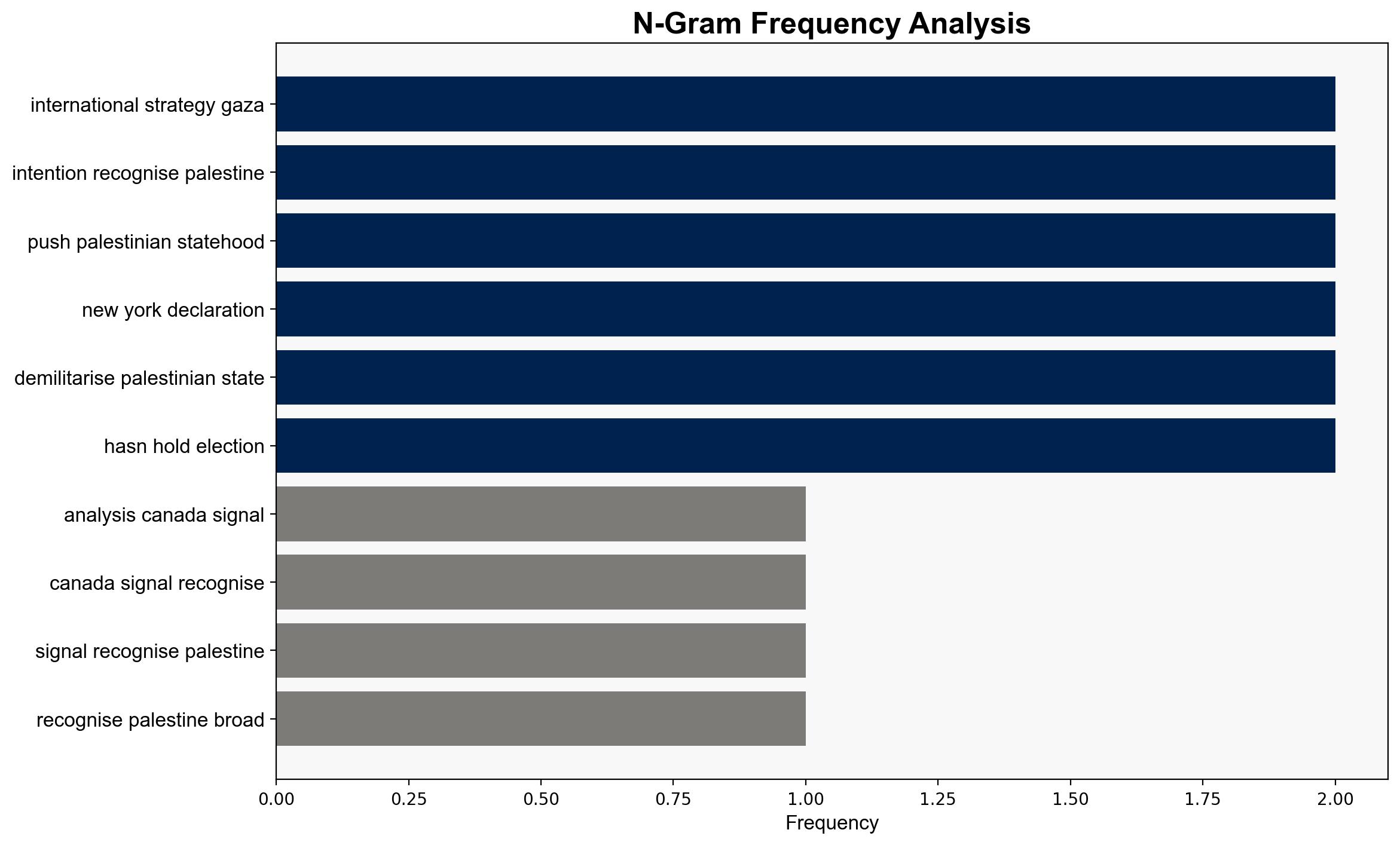A highly coordinated international strategy on Gaza is now unfolding – ABC News (AU)
Published on: 2025-07-31
Intelligence Report: A highly coordinated international strategy on Gaza is now unfolding – ABC News (AU)
1. BLUF (Bottom Line Up Front)
The most supported hypothesis is that a coordinated international strategy is being implemented to recognize Palestinian statehood, involving key Western and Arab nations. This strategy aims to pressure Israel and the Palestinian Authority towards a two-state solution, while simultaneously addressing the influence of Hamas. Confidence Level: Moderate. Recommended action includes diplomatic engagement with involved nations to understand their positions and intentions, and preparation for potential shifts in regional alliances.
2. Competing Hypotheses
1. **Hypothesis A**: A coordinated international strategy is unfolding to recognize Palestinian statehood, aimed at revitalizing the peace process and countering Hamas’s influence. This involves a coalition of Western and Arab countries working together to apply diplomatic pressure on Israel and the Palestinian Authority.
2. **Hypothesis B**: The international declarations are primarily symbolic, serving as a diplomatic gesture without substantial follow-through. The lack of concrete commitments from key players like the United States suggests limited actual impact on the ground.
Using ACH 2.0, Hypothesis A is better supported by the coordinated statements from multiple countries and the involvement of significant international actors like France and Saudi Arabia. Hypothesis B is weakened by the explicit calls for action and the strategic timing of the announcements.
3. Key Assumptions and Red Flags
– **Assumptions**: It is assumed that the countries involved have a unified objective and that their public statements reflect genuine intentions. There is also an assumption that Israel and the Palestinian Authority will respond predictably to international pressure.
– **Red Flags**: The absence of a clear position from the United States and the potential for internal disagreements within the coalition could undermine the strategy. Additionally, the reliance on Mahmoud Abbas to enact reforms may be overly optimistic given historical challenges.
4. Implications and Strategic Risks
– **Geopolitical**: A shift towards recognizing Palestinian statehood could alter regional alliances and provoke strong reactions from Israel and its allies.
– **Economic**: Increased tensions could disrupt regional trade and investment, particularly if hostilities escalate.
– **Psychological**: The strategy might embolden Palestinian factions or lead to increased unrest if perceived as insufficient or insincere.
– **Cyber**: Potential for cyber-attacks from state or non-state actors opposed to the strategy.
5. Recommendations and Outlook
- Engage diplomatically with key nations to clarify their positions and intentions.
- Prepare contingency plans for potential escalation in the region.
- Monitor developments closely for shifts in U.S. policy or unexpected reactions from Israel.
- Scenario Projections:
- Best: Successful diplomatic pressure leads to renewed peace talks and a reduction in hostilities.
- Worst: Breakdown in international coordination leads to increased violence and regional instability.
- Most Likely: Incremental progress with ongoing diplomatic efforts, but significant challenges remain.
6. Key Individuals and Entities
– Mahmoud Abbas
– Mark Carney
– Anthony Albanese
– Sir Keir Starmer
7. Thematic Tags
national security threats, regional focus, geopolitical strategy, diplomatic relations




